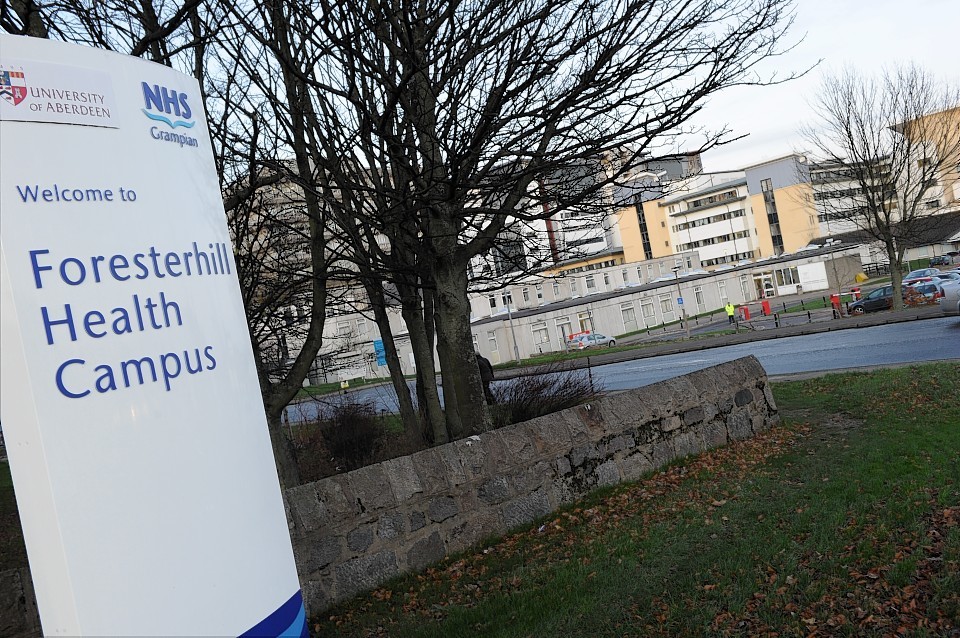NHS Grampian’s £2million shake-up of frontline care was greeted with caution by senior consultants when it was announced by the health board, but what does it actually mean for patients? Stephen Walsh finds out.
It has been a torrid few weeks for the north-east’s health board.
Hundreds of clinicians called for urgent improvements to its management, the head of the NHS in Scotland visited Aberdeen to hold talks with them – and chairman Bill Howatson quit after three years in his post.
All this happened against a backdrop of an unprecedented threat to frontline care, and growing unrest over staff shortages in accident and emergency and an “over-reliance” on expensive locums to plug gaps.
But NHS Grampian says its plans to revamp Aberdeen Royal Infirmary’s “front door” services as part of a drive to improve the flow of patients back into the community is the first step in addressing the wider issues faced by the flagship hospital and the health board.
The development plan will mean changes for acute medicine, elderly care and high-dependency care.
So what will the changes mean for patients in the north-east and their families?
Newly-appointed medical director Dr Nick Fluck explained.
Acute medicine
This would involve a new “ambulatory care service” in ARI to treat patients requiring ambulatory care.
Ambulatory care involves treatment for conditions which do not necessitate an overnight stay in hospital.
Dr Fluck says this is one of the most common types of treatment needed by patients.
He said: “An example of this is if you get an infection in your skin, it’s called cellutosis.
“If it’s a bad infection but you still feel well you still get admitted for two to three days because you need three doses of antibiotics.
“Ninety-five per cent of the time you are not actually doing anything with the patient, and they are just lying there waiting for us to come and give them injections.
“It’s very tedious for people and also dangerous because the longer you are in the hospital, the longer you are exposed to hazards.”
The acute care consultant team has already run a pilot of the service, in which they treated 100 patients who would otherwise have been admitted to hospital.
People will be seen in a clinic setting by a consultant and would then be able to go home.
A seven-day trial of the service will run next month.
In addition, this would be supported by an acute care consultant in the emergency department who would refer cases directly to the service.
Medical high-dependency care
High-dependency patients are those requiring level two care, with level three being those who are in the most critical condition.
The new system will involve each patient being assigned one consultant to provide round-the-clock care and support.
Dr Fluck said: “With this new system, for example if you were suffering from kidney failure and infection, you would be put in the high-dependency unit.
“You have specialist nurses and equipment. You would also have a 24/7, dedicated consultant looking after you and looking at your care.
“And when they needed to involve other specialists they would do.
“If you were a family member you would have continuity each time you visited.
“By investing in it, this allows us to have continuity over seven days.
“Just because it’s Saturday or Sunday doesn’t make someone any less sick.”
Patients will be admitted to the emergency care unit at ARI, which was opened in 2012.
Dr Fluck expects the changes to come into effect from spring next year.
Acute care for the elderly-enablement team
This is a department which is already in place in the geriatric assessment unit at ARI.
The new initiative will mean the team will be able to see patients in the emergency department and other wards in the hospital.
Through this service, elderly people will be treated and returned home as quickly as possible.
Dr Fluck said: “A great deal of elderly people are really very robust.
“Whereas there will be some frail elderly people who often have one, two, three, four, five medications to take a day.
“If something has happened that’s disrupted their home situation, for example, a fall that leads them to be taken into hospital, this can be dangerous because of the risk of infection.
“This unit gives the experts the chance to look at each patient and work with GPs and community support team so they can come home as soon as possible and don’t lose some of that independence.”
This will be a seven-day, daytime service once it is introduced.
